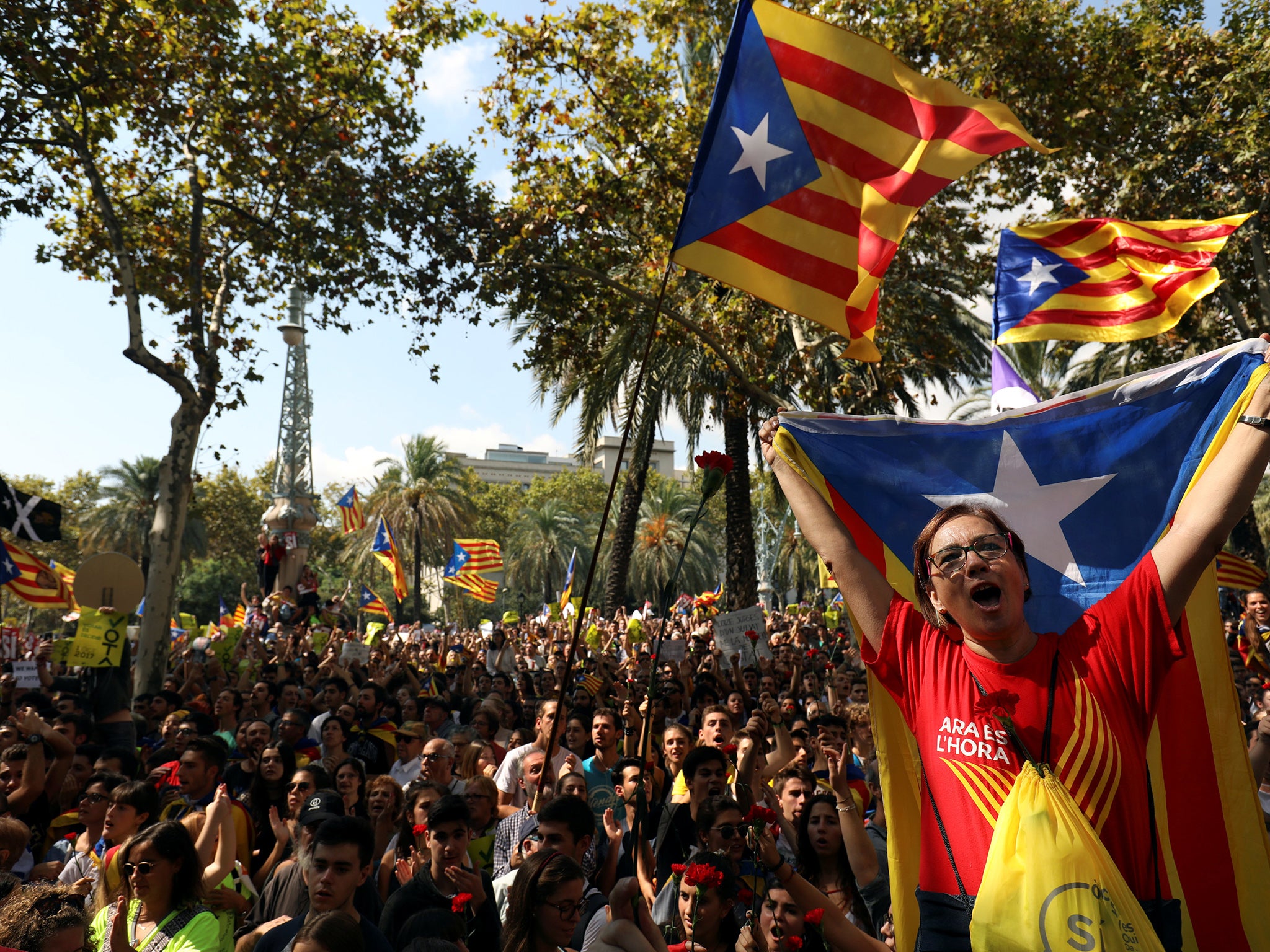Catalonia referendum: EU won't intervene in regional independence crisis in Spain
Statement comes as Spanish government cracks down on separatist officials believed to have organised secession vote

Your support helps us to tell the story
From reproductive rights to climate change to Big Tech, The Independent is on the ground when the story is developing. Whether it's investigating the financials of Elon Musk's pro-Trump PAC or producing our latest documentary, 'The A Word', which shines a light on the American women fighting for reproductive rights, we know how important it is to parse out the facts from the messaging.
At such a critical moment in US history, we need reporters on the ground. Your donation allows us to keep sending journalists to speak to both sides of the story.
The Independent is trusted by Americans across the entire political spectrum. And unlike many other quality news outlets, we choose not to lock Americans out of our reporting and analysis with paywalls. We believe quality journalism should be available to everyone, paid for by those who can afford it.
Your support makes all the difference.The European Union has signalled it is unlikely to intervene in the crisis unfolding in Spain over Catalan independence, saying it must respect the constitution of the country.
The Spanish government has said the planned referendum is illegal and on Wednesday arrested 14 senior officials, seized ballot papers and raided the homes of the Catalan separatists suspected of coordinating the vote, due to take place on 1 October.
The head of Catalonia’s pro-separatist government has claimed the national government’s actions amount to the creation of a “de facto state of emergency” in the region. Meanwhile, thousands of protesters have taken to the streets in support of Catalan secession.
Although the row has grown to become one of the country’s worst political crises since Spain’s return to democracy in the 1970s, the EU has indicated it will not mediate in the country.
A European Commission spokesperson said to reporters in Brussels: “The commission only has the powers which are given to it and when it comes to this position we have a position which goes back to 2004. It is not an improvised position; it is the result of the competences that we have a position that has been expressed by the President: we must respect the constitutional order and the legal framework of each member state.”
Pro-separatist group the Catalan National Assembly called for long-term street protests hours after the government’s Guardia Civil police arrested the Catalan officials.
The group, which has played a major role in the secession movement, has urged its supporters to gather outside the court where some of the arrested officials are being held and to bring tents if needed.
On Thursday, thousands of protesters congregated outside Catalonia’s judiciary body in Barcelona to demand the release of the arrested officials.
The assembly’s spokesman, Adria Alsina, said they would remain on the streets until “all the prisoners are released”.
Spain’s Prime Minister Mariano Rajoy earlier told the separatist leaders to halt the “escalation” on Wednesday night as protesters remained on the streets of Barcelona following the day-long demonstration.
“Don’t go ahead. Go back to the law and democracy. This referendum is a chimera,” Mr Rajoy said in a televised statement.
“Stop this escalation of radicalism and disobedience once and for all,” he added.
Leaders of Spain’s main opposition Socialist party as well as the centre-right Ciudadanos (Citizens) party also warned Catalan leaders that “greater harm” lay ahead if they didn’t call off the vote.
Carles Puigdemont, the head of Catalonia’s pro-separatist government, described the raids as a “coordinated police assault”, and said the government’s actions to suspend the local government amounted to a “de facto state of emergency” in Catalonia.
In a series of tweets, he added, “we will not accept a return to the darkest times”, apparently alluding to General Franco’s dictatorship.
Mayor of Barcelona Ada Colau also criticised the state crackdown on Twitter, calling it a “democratic scandal”.
The crisis shows no sign of diminishing ahead of the proposed vote, with Spain’s interior ministry cancelling leave for all national police officers and the Guardia Civil from 20 September to 5 October, as the government aims to prevent the referendum taking place.
Late on Thursday Spain’s Constitutional Court said it would fine 22 members of an electoral board responsible for overseeing the planned referendum in Catalonia.
The board members will be fined between 6,000 and 12,000 euros a day as long as they continue to defy court orders suspending the vote.
Join our commenting forum
Join thought-provoking conversations, follow other Independent readers and see their replies
Comments